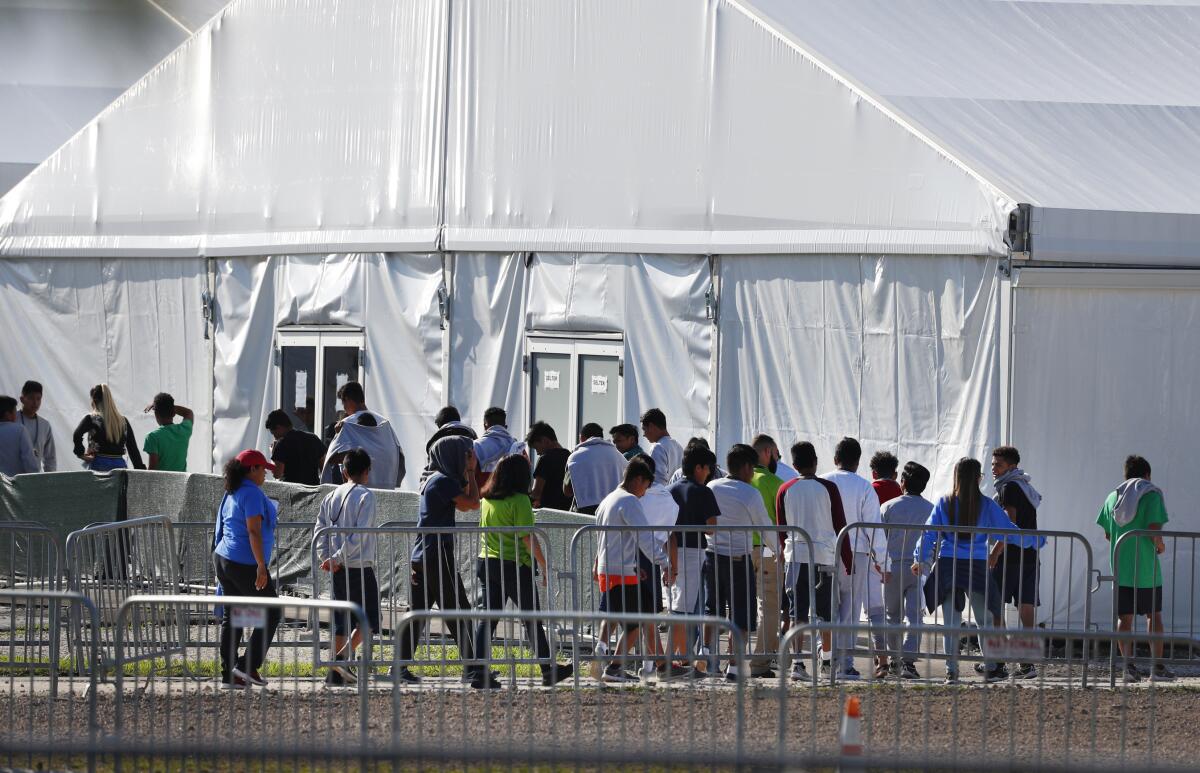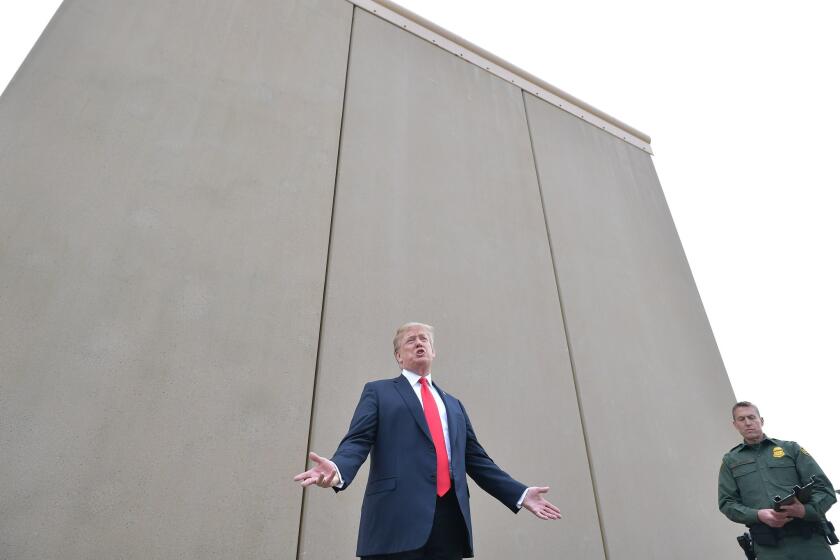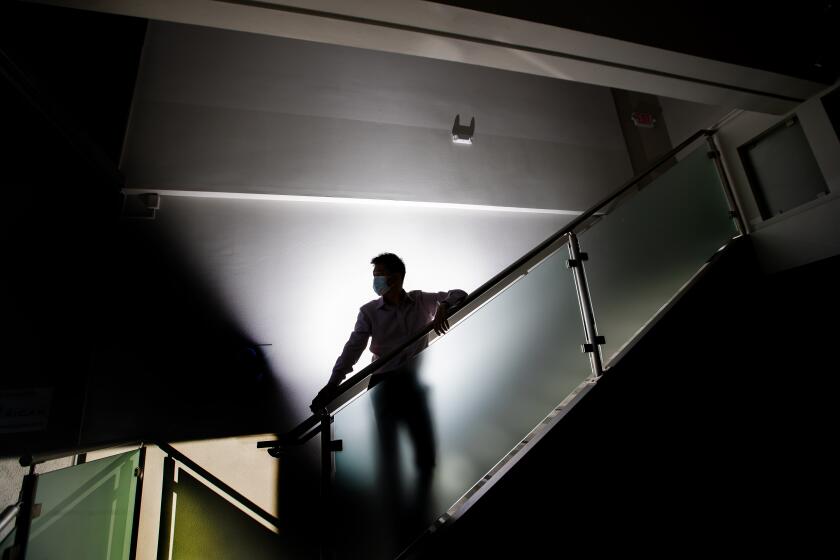Parents of 545 children separated at the U.S.-Mexico border can’t be found

SAN DIEGO — Court-appointed lawyers said Tuesday that they have been unable to find parents of 545 children who were separated at the U.S. border with Mexico early in the Trump administration.
The children were separated between July 1, 2017, and June 26, 2018, when a federal judge in San Diego ordered that children in government custody be reunited with their parents.
Children from that period are difficult to find because the government had inadequate tracking systems. Volunteers have searched for them and their parents by going door-to-door in Guatemala and Honduras.
More than 2,700 children had been separated from their parents in June 2018 when U.S. District Judge Dana Sabraw ordered an end to the practice, which was part of a Trump administration “zero-tolerance” policy to criminally prosecute every adult who entered the country illegally from Mexico. The administration sparked an international outcry when parents couldn’t find their children.
While those families were reunited under court order, authorities later discovered that up to 1,556 children were separated under the policy going back to the summer of 2017, including hundreds in El Paso from July to November 2017, which was not publicly disclosed at the time.
The American Civil Liberties Union, which sued over the practice, said a court-appointed steering committee had located the parents of 485 children, up 47 from August. That leaves 545 still unaccounted for among the 1,030 children for whom the steering committee had telephone numbers from U.S. authorities.
Even after Trump stops hitting his favorite punching bag, California will feel the impact of his immigration restrictions.
The parents of about two-thirds of those 545 children are believed to be in their home countries, the ACLU said.
Volunteers have “engaged in time-consuming and arduous on-the-ground searches for parents in their respective countries of origin,” the ACLU said in a court filing. Those searches were suspended after the coronavirus outbreak but have resumed in a limited way.
The steering committee has also promoted toll-free phone numbers in Spanish to reach families.
The judge has scheduled a hearing on Thursday to discuss the status of reunification efforts.
A Times investigation found that since 2017, at least 265 calls have reported violence and abuse inside California’s four privately run immigrant detention centers. Half of them alleged sex crimes against detainees.
More to Read
Sign up for Essential California
The most important California stories and recommendations in your inbox every morning.
You may occasionally receive promotional content from the Los Angeles Times.












